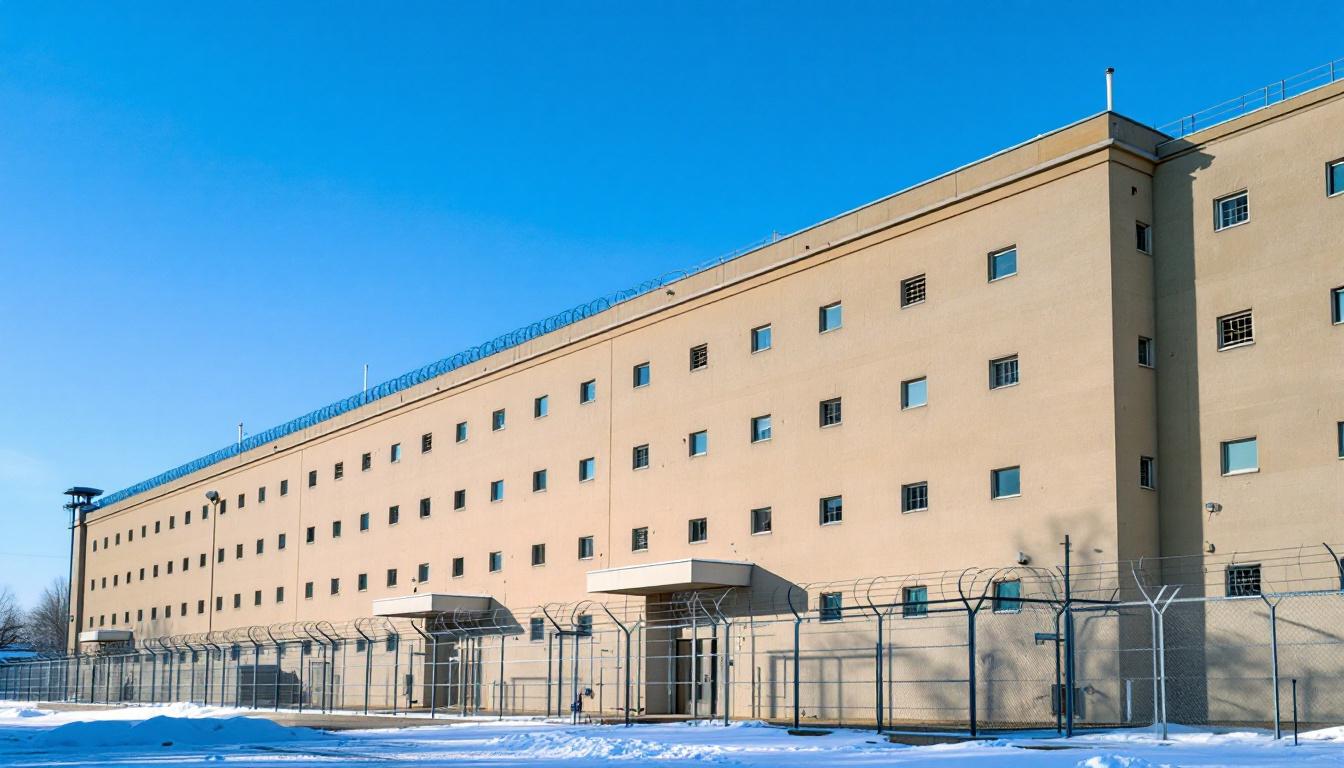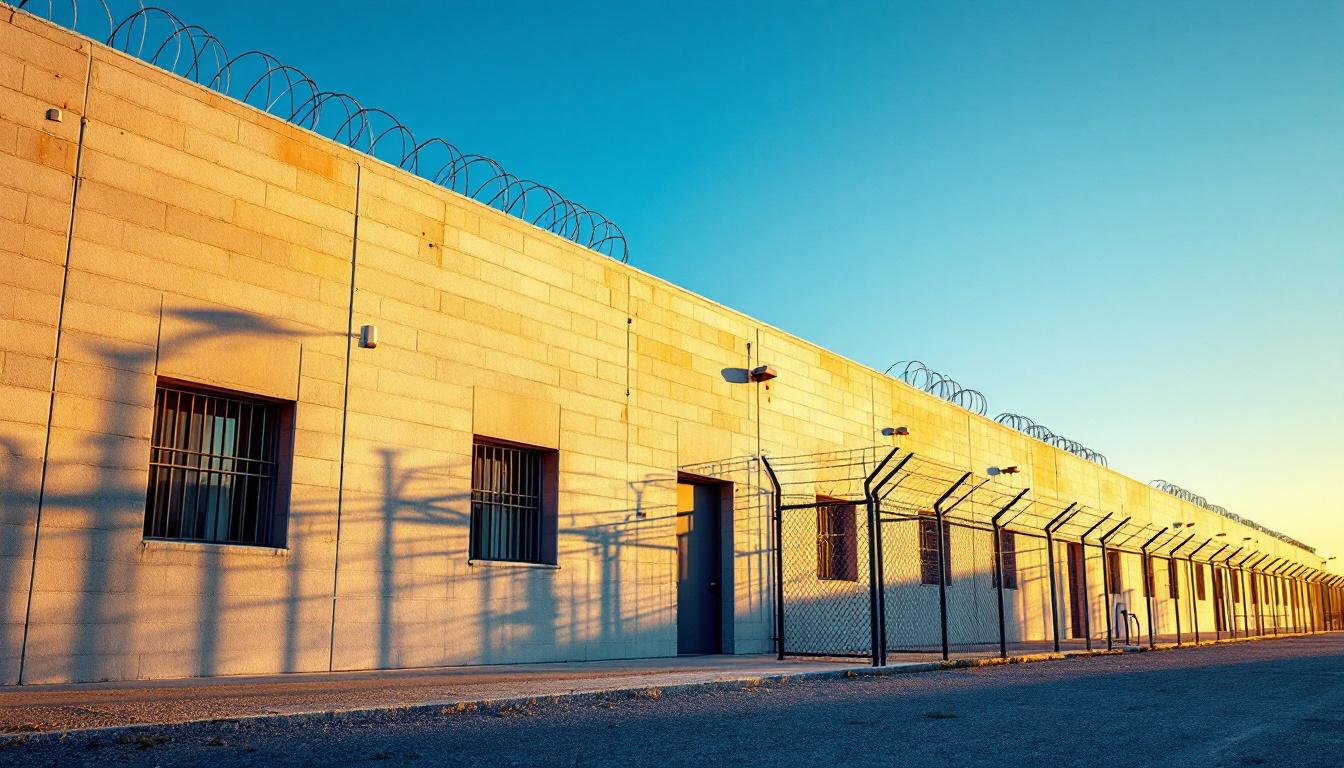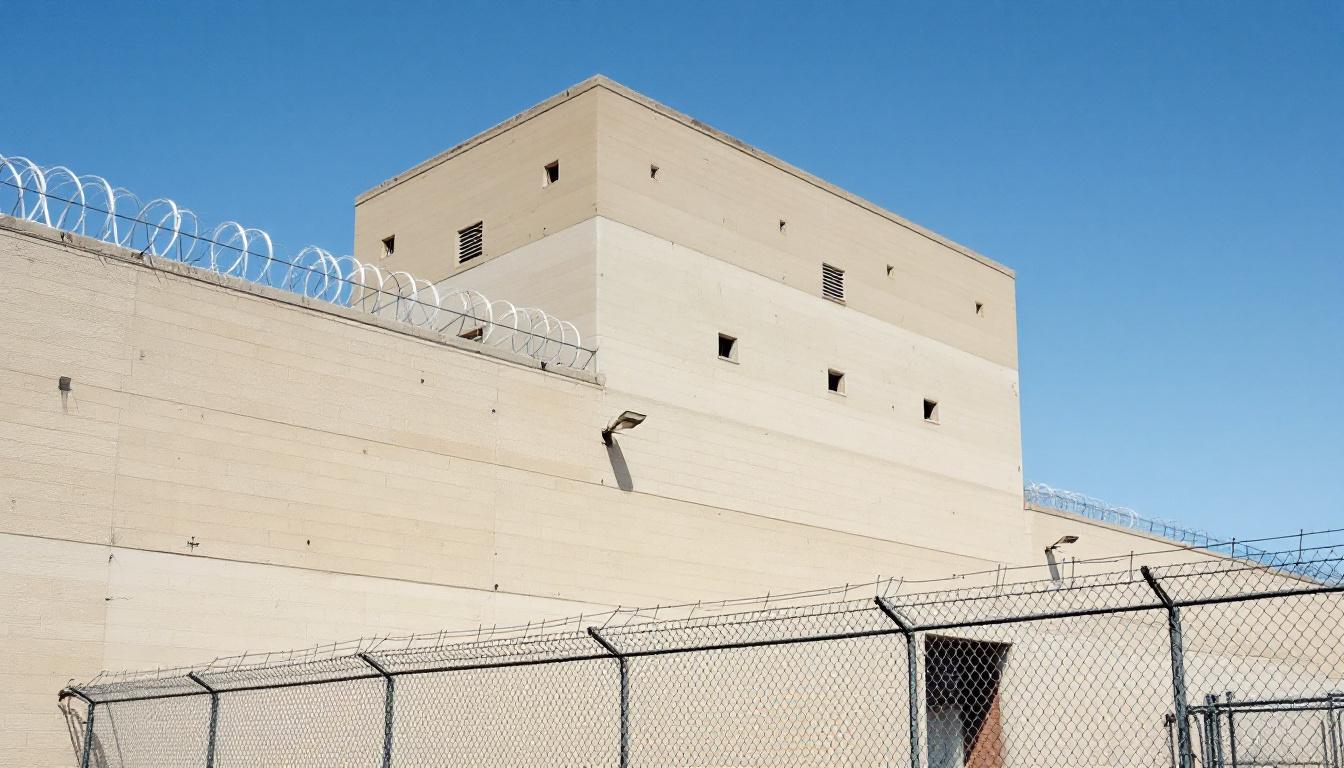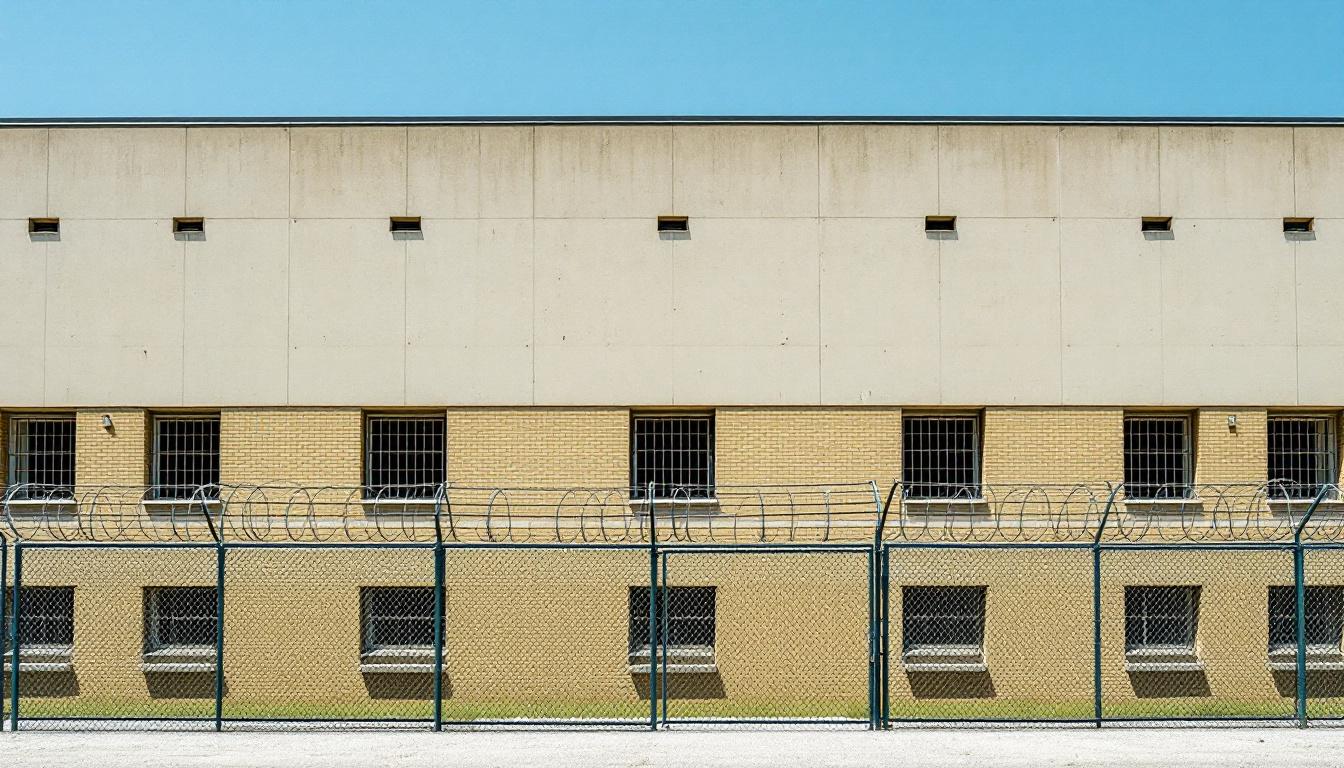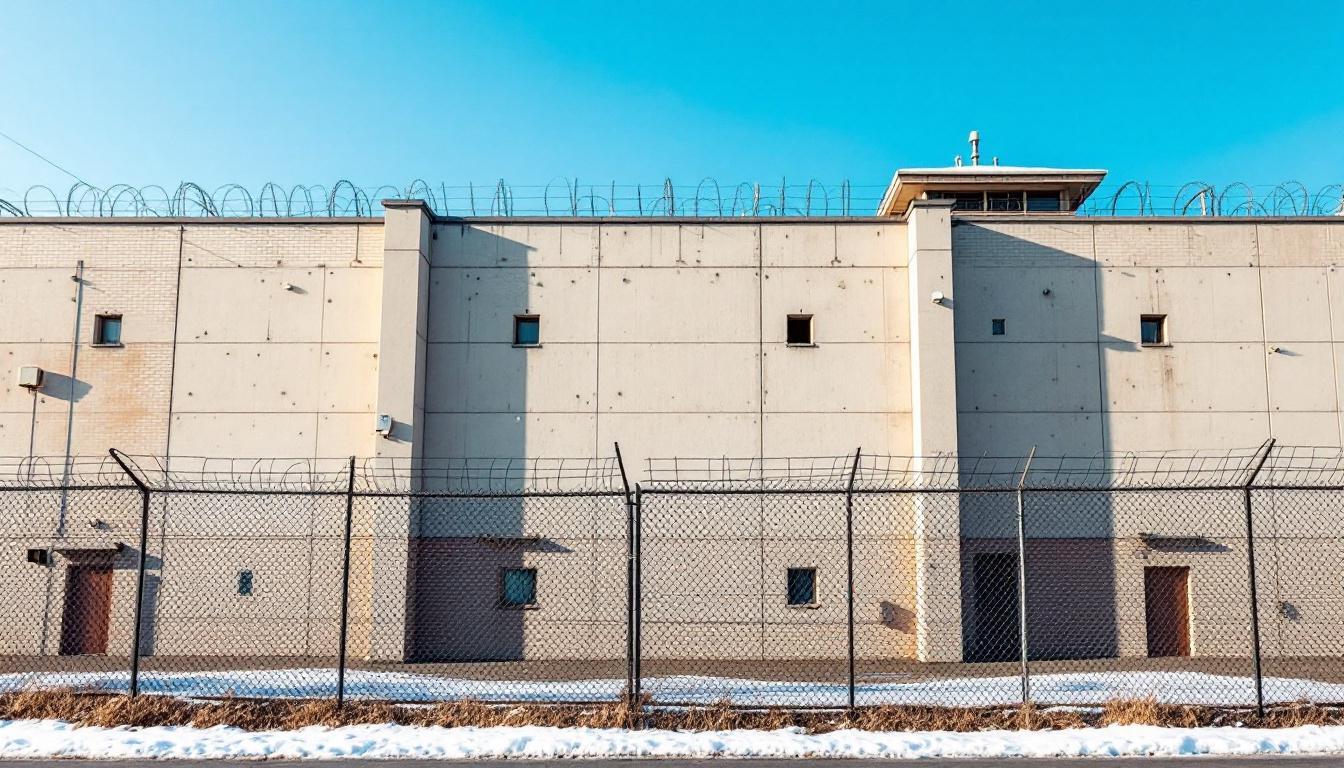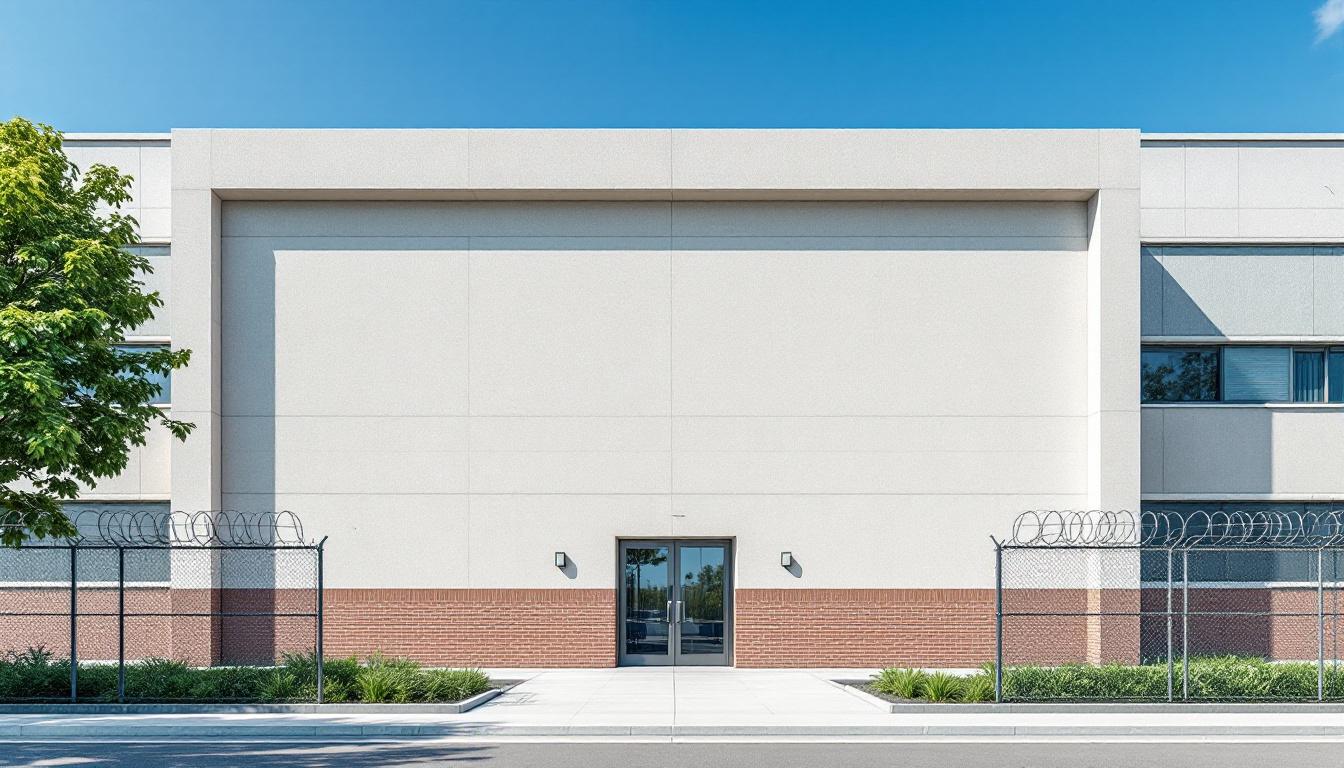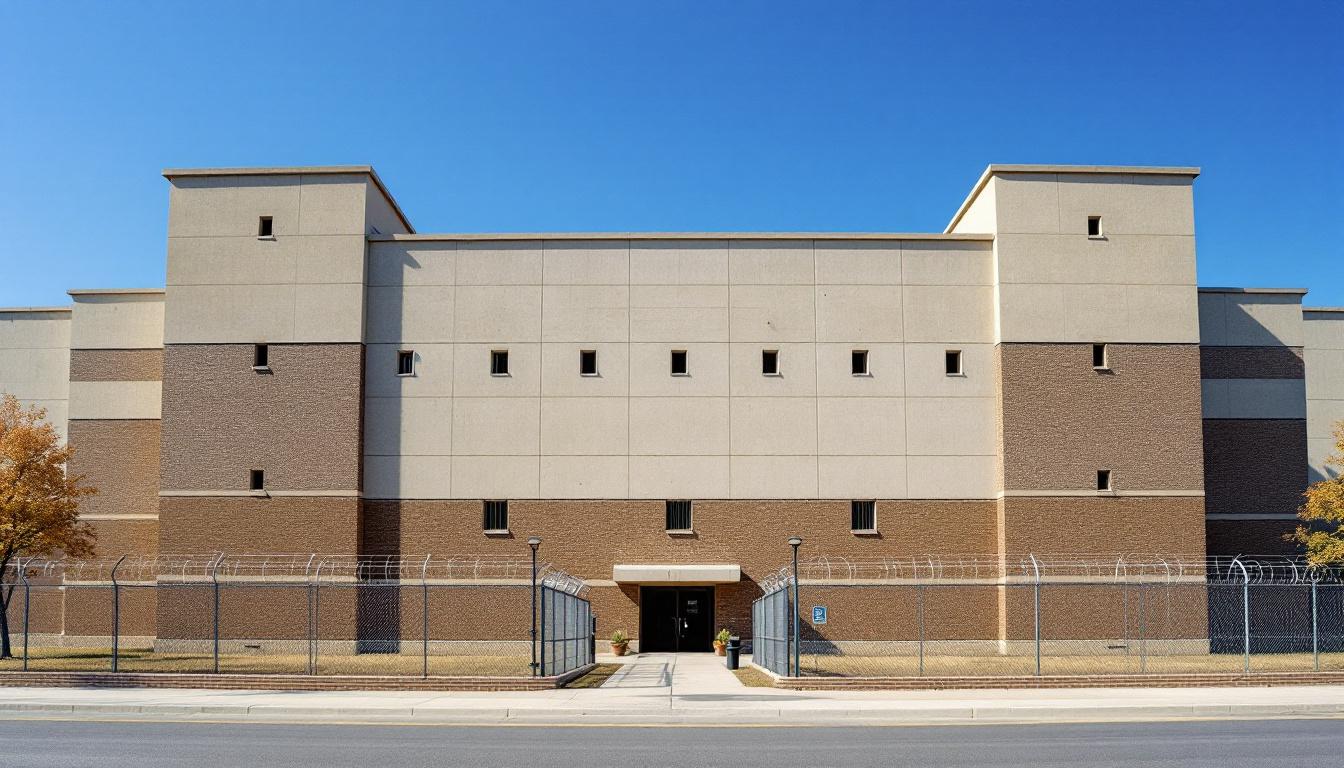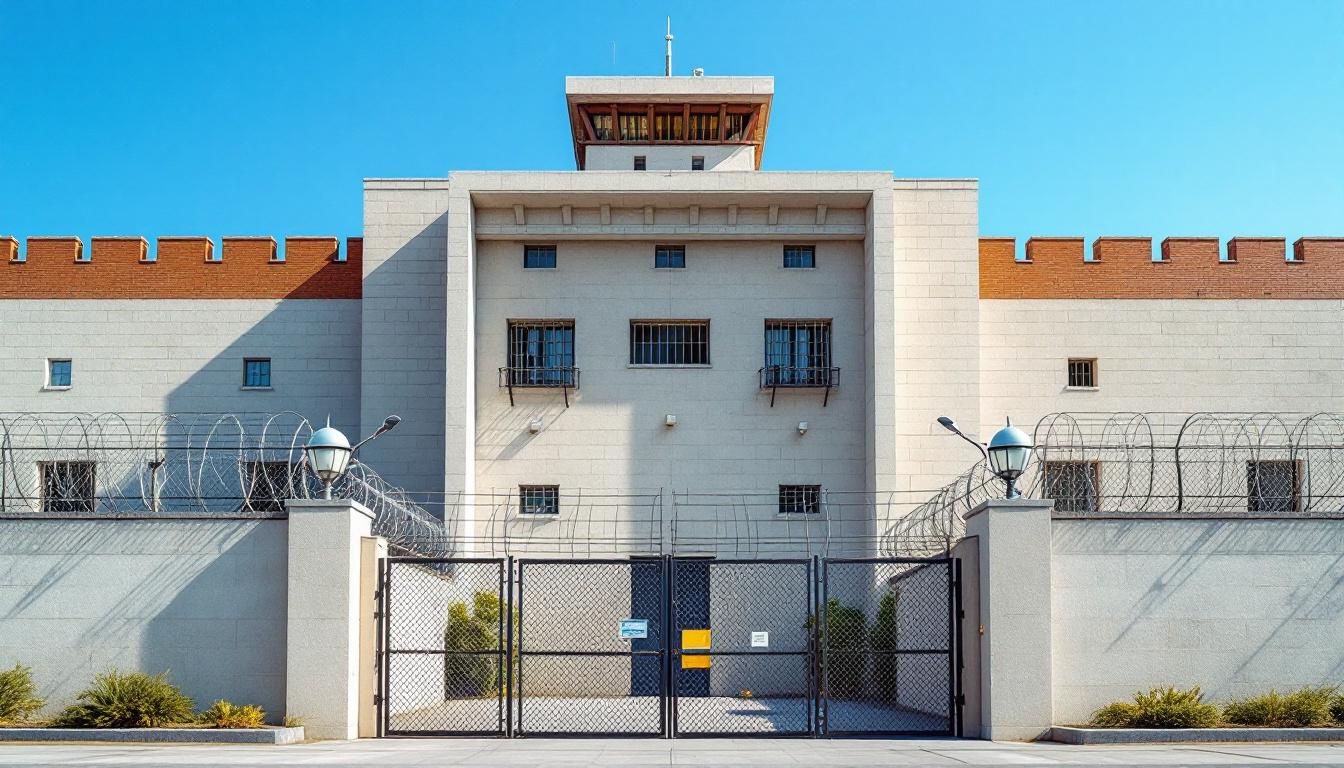
Quick Navigation
How to contact an inmate at Smith State Prison
This comprehensive guide will walk you through how to connect with an inmate at Smith State Prison. Follow the steps below to find an inmate and send letters and photos:
- Search for the inmate using our search tool below
- Create your account or log in to Penmate
- Write your message (up to 6,000 characters)
- Send instantly - inmates receive printed copies daily
Find an Inmate
Search for an inmate to start communicating today
Tip: You can search by first name, last name, or inmate ID number
To contact a person at Smith State Prison start by searching for the person on the official facility website. Perform a search by following these steps:
- Step 1: Enter their first name and last name into the search form and click "Search"
- Step 2: Locate their inmate record
- Step 3: Write down their Inmate ID and any housing information provided
Important! Be sure to enter the person's full name. Nicknames should not be used.
How to Send Messages to Inmates

You can use your phone or computer to send emails, letters, and photos to an inmate. Messages are sent electronically to inmate tablets or kiosks at the facility. If you would like to send a message, start by searching for an inmate at Smith State Prison.
Sending Photos and Postcards

A great way to send love and support to a loved one at Smith State Prison is to send photos and postcards. It only takes a few minutes to send photos from your phone and it makes a huge difference. You can also mail postcards with words of support and inspiration, or design your own postcard for special moments like birthdays and holidays.
Important! Be sure not to send any explicit photos or they may not be approved by the facility. You can also use a photo printing app like Penmate to make sure your photos are printed at the correct size (4x6 or 3x5) and are mailed according to the rules and regulations of Smith State Prison.
Frequently asked questions about Smith State Prison
-
How long does it take to deliver a message?
If you're sending an email message your letter is usually delivered within 24-48 hours. For messages sent via mail you should expect delivery within 3-7 days. All messages will need be approved by Smith State Prison.
-
How much does it cost to send a message to Smith State Prison?
You can send a message free using your phone or mail a message via USPS for the price of a $0.60 stamp and envelope. You can also purchase credits or e-stamps from services starting at $1.99.
-
What services can I use to contact an inmate at Smith State Prison?
Penmate
You can use Penmate to send letters and photos to an inmate from your phone. It's an easy way to stay in touch during your loved one's incarceration. Use the inmate locator to find an inmate's location and contact information, then you can send messages within a few minutes.
Securus messaging
Securus may be another option for communicating with an inmate at Smith State Prison. You can create a friends and family account and purchase credits to send messages. All messages will be reviewed and must be approved by the facility.
JPay
Some county jails and state prisons may support sending messages with JPay. You must register an account with the system, find your loved one, and purchase stamps to send messages. For some locations you can also attach photos.
Smart Jail Mail
You may also check if Smart Jail Mail is available at Smith State Prison. Smart Jail Mail is operated by Smart Communications and has contracted with some state and county jails. After purchasing credits, your messages and photos are sent to the facility, printed out, and then handed out to your loved one.
-
What is the mailing address of Smith State Prison?
Mailing address:
Smith State Prison
9676 US-301
Glennville, GA 30427
Phone: (912) 654-5000Business hours:
- Monday: 8:00 AM – 4:00 PM
- Tuesday: 8:00 AM – 4:00 PM
- Wednesday: 8:00 AM – 4:00 PM
- Thursday: 8:00 AM – 4:00 PM
- Friday: 8:00 AM – 4:00 PM
- Saturday: Closed
- Sunday: Closed
-
What are the visiting hours at Smith State Prison?
Visiting hours at Smith State Prison vary by housing unit and security level. Generally, visits are scheduled on weekends and holidays, with some facilities offering weekday visits. Contact the facility directly at (912) 654-5000 or check their website for the current visiting schedule. Visits typically last 30-60 minutes and must be scheduled in advance.
-
What items are prohibited when sending mail to Smith State Prison?
Prohibited items typically include: cash, personal checks, stamps, stickers, glitter, glue, tape, staples, paperclips, polaroid photos, musical or blank greeting cards, hardcover books, magazines with staples, and any items containing metal or electronics. Only send letters on plain white paper with blue or black ink. Photos must be printed on regular photo paper (no Polaroids). Always check with Smith State Prison for their specific mail policies.
-
How do I send money to an inmate at Smith State Prison?
You can send money to an inmate at Smith State Prison through several methods: 1) Online using JPay, Access Corrections, or the facility's approved vendor, 2) Money orders mailed directly to the facility with the inmate's name and ID number, 3) Kiosks located in the facility lobby, or 4) Over the phone using a credit or debit card. Fees vary by method, typically ranging from $2.95 to $11.95 per transaction.
-
Can I schedule a video visit with an inmate at Smith State Prison?
Many facilities now offer video visitation as an alternative to in-person visits. At Smith State Prison, video visits may be available through services like Penmate, Securus Video Connect, GTL, or ICSolutions. Video visits typically cost $10-20 for 20-30 minutes and must be scheduled in advance. You'll need a computer or smartphone with a camera and reliable internet connection. Contact the facility for their specific video visitation policies and approved vendors.
-
What identification do I need to visit an inmate at Smith State Prison?
All visitors must present valid government-issued photo identification such as a driver's license, state ID, passport, or military ID. Minors must be accompanied by a parent or legal guardian who can provide the minor's birth certificate. Some facilities require visitors to be on the inmate's approved visitation list, which may require a background check. Contact Smith State Prison for specific ID requirements and visitor approval procedures.
-
How can I find out an inmate's release date?
To find an inmate's release date at Smith State Prison, you can: 1) Use the online inmate search tool if available, 2) Call the facility's records department, 3) Contact the inmate's case manager or counselor, or 4) Have the inmate provide this information during a call or visit. For privacy reasons, some facilities only release this information to immediate family members.
Facility Overview
Official Website

About Smith State Prison
**Smith State Prison Overview**
Operating as a medium-security correctional facility in Glennville, Georgia, Smith State Prison has served the state's correctional system since opening in 1993. This Tier I & II facility houses up to 1,526 offenders and specializes in managing individuals with behavioral problems that cannot be addressed at other institutions. The prison operates with a clear mission to ensure public safety while providing a structured environment through comprehensive work and program resources, including a step-down program designed to support offender rehabilitation.
Smith State Prison features a diverse housing configuration with 16 general population units and one administrative segregation building. The facility includes both traditional cell-based housing and open dormitory arrangements, accommodating varying security and behavioral needs. Beyond housing, the prison operates a Correctional Industries Plant and Georgia Correctional Industries Warehouse, providing meaningful work opportunities through details in recycling, maintenance, grounds keeping, and warehouse operations. The facility also serves as a host location for the Long Unit, Women's Probation Detention Center, and Smith Transitional Center.
The prison emphasizes reintegration through extensive programming focused on education, counseling, and personal development. Academic opportunities include General Education Diploma programs, Adult Basic Education, and associate degree coursework. Counseling services encompass individual therapy, family violence intervention, re-entry preparation, and specialized programs such as Moral Reconation Therapy and the Sex Offender Psycho-Educational Program. Visitation occurs on weekends and state holidays from 9:00 AM to 3:00 PM, supporting family connections that are vital to successful community reintegration upon release.
Programs & Services
The facility's comprehensive academic programming includes General Education Diploma preparation and testing, Adult Basic Education, and literacy remedial courses, with opportunities for inmates to pursue an Associate's Degree through Ashland University. These educational foundations support the institution's broader mission of providing structured rehabilitation through work and program resources, particularly for individuals with behavioral challenges that require specialized attention.
Counseling and therapeutic services form a substantial component of the rehabilitation approach, featuring evidence-based programs such as Moral Reconation Therapy, Thinking for a Change, and Motivation for Change. The facility typically offers specialized interventions including family violence counseling, relapse prevention, and the Sex Offender Psycho-Educational Program (SOPP). Additional support groups may include Active Parenting classes, a Lifers Group for long-term inmates, and Early Recovery Skills programming. Individual counseling services and re-entry preparation help address personal challenges and transition planning.
Work-based programming provides practical skills development through various details including recycling operations, maintenance shop work, grounds keeping, and warehouse assignments. The facility operates both a Correctional Industries Plant and Georgia Correctional Industries Warehouse, offering inmates opportunities to develop job skills and work experience. Recreational programming and other support services may complement these core offerings, creating a structured environment designed to address behavioral issues while preparing individuals for successful community reintegration.
Daily Life & Visitation
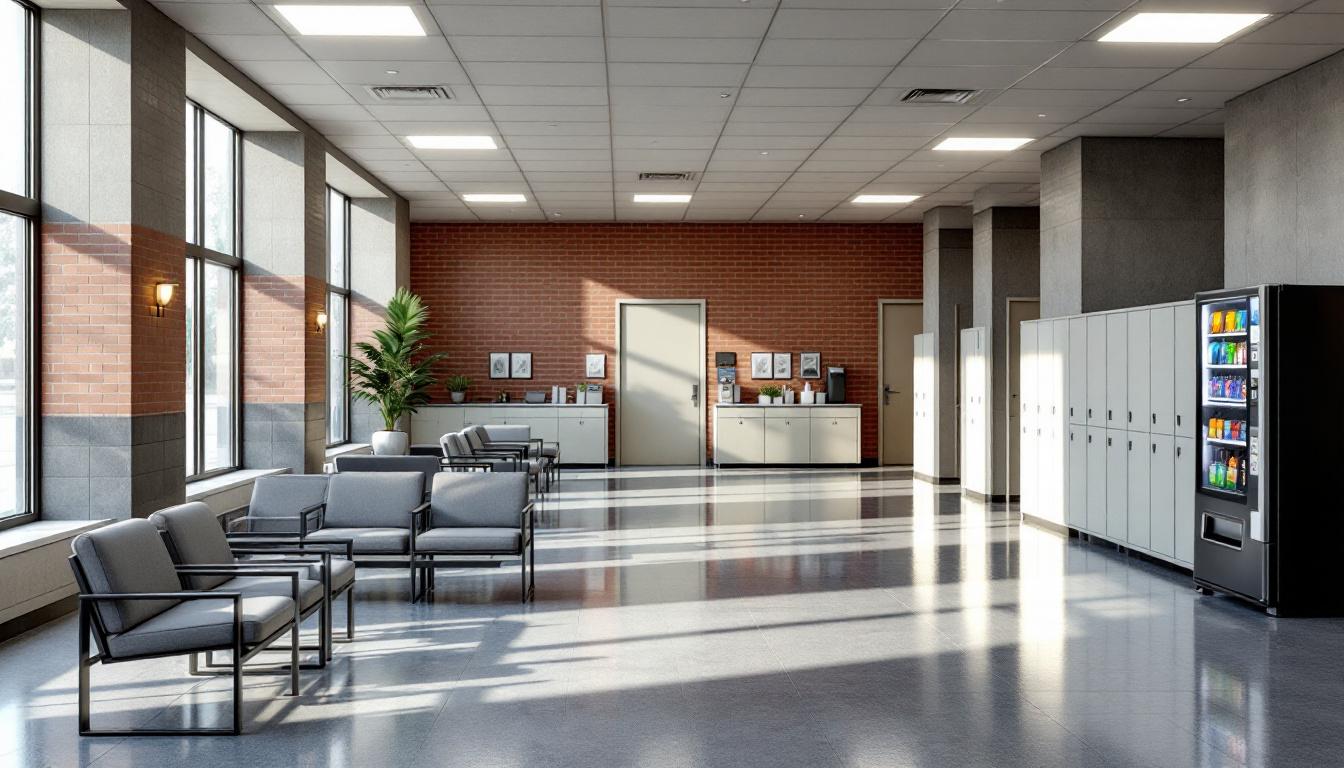
Residents at Smith State Prison wake each morning in one of 16 general population housing units, with most sharing cells designed for two people, while others are housed in open dormitory-style accommodations with double beds. The facility, which opened in 1993 with a capacity of 1,526, operates as both a Tier I & II facility with a STEP DOWN program, meaning it houses individuals with behavioral challenges that require specialized attention and structured programming.
Throughout the week, residents participate in various work assignments including recycling operations, maintenance shop duties, grounds keeping, and warehouse work through Georgia Correctional Industries (GCI). The facility's educational opportunities are extensive, offering General Education Diploma programs, Adult Basic Education, literacy support, and even Associates Degree coursework. Counseling programs address multiple needs, from individual therapy to specialized groups like Moral Reconation Therapy, Family Violence intervention, Re-Entry preparation, and substance abuse recovery programs. The facility also provides recreational activities, though specific details about these programs may vary.
Family connections remain important, with visitation occurring on Saturdays, Sundays, and state holidays from 9:00 AM to 3:00 PM, though families should contact the facility directly for specific tier visitation schedules. As a host facility for multiple programs including the Long Unit, Women's Probation Detention Center, and Smith Transitional Center, the prison maintains a structured environment focused on rehabilitation and public safety. The presence of specialized teams like C.E.R.T. (Correctional Emergency Response Team) and a Fire Station ensures comprehensive safety protocols are maintained throughout daily operations.
Ready to Connect?
Start communicating with your loved one today
Search for an Inmate
